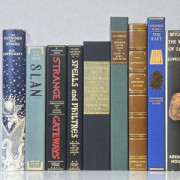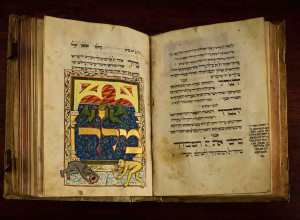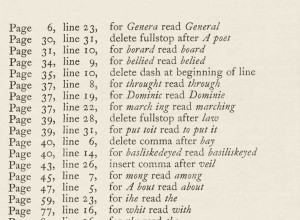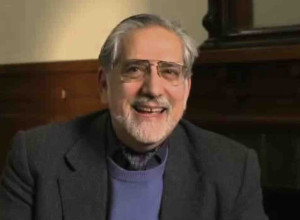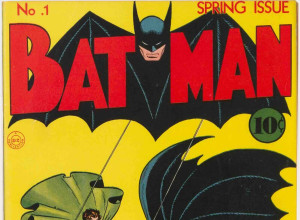Staley to Retire at HRC
The news out of the Southwest this week is that after twenty-two years at the helm of the Harry Ransom Humanities Research Center at the University of Texas, Austin, Thomas F. Staley will be retiring as director at the end of August. An internationally renowned James Joyce scholar, Staley has had quite a run at what is indisputably one of the outstanding research libraries in the world, and in the field of twentieth-century British and American literary manuscripts and archives, pretty much in a class by itself.
Staley was appointed in 1988 at a time when the HRC was at a crossroads, having been vaulted into the top tier of institutional collections by the late provost Harry Huntt Ransom, who had declared in 1957 his intention to create what he called a "Biliotheque Nationale" in the "only state that started out as an independent nation." The decidedly unconventional approach Ransom pursued to achieve this goal became the stuff of legend--it was what I came to describe as a form of institutional bibliomania that transformed what was then a very good library into a great one--and was at the core of a chapter I wrote for A Gentle Madness that I called "Instant Ivy."
When Staley came to Austin, the massive repository was already filled to bursting with millions of pages of documents, the pace of acquisition so frenetic that many thousands of them were not even catalogued yet. One person familiar with the meteoric growth, the English bookseller Colin Franklin, told me at the time that what the HRC needed to get itself on a steady course "and settle down a bit" was a person like Staley, who, as it turns out, did measurably more than act as caretaker. What he did in essence was to build on greatness and create his own distinctive identity, in much the same way that Mickey Mantle followed Joe Dimaggio into center field for the New York Yankees (or, for Red Sox fans, having Yaz take over left field in Fenway Park for Ted Williams.)
As an administrator, Staley raised $100 million for the center's programs; in collection development, he added a succession of remarkable literary archives, Norman Mailer, Don DeLillo, Isaac Bashevis Singer, Doris Lessing, Julian Barnes, Elizabeth Hardwick, Penelope Fitzgerald, Stella Adler, and Bernard Malamud among them, and he made headlines around the world when he acquired the Watergate files of Washington Post investigative reporters Bob Woodward and Carl Bernstein. Just as significant, in my view, was a new policy of openness and accessibility that Staley introduced at the HRC, making materials much easier for scholars to use. William Powers, president of the university, summed up his contributions with these words: "We owe a great debt of gratitude and deepest appreciation to Tom Staley."
A search will be conducted to name his replacement.
Staley was appointed in 1988 at a time when the HRC was at a crossroads, having been vaulted into the top tier of institutional collections by the late provost Harry Huntt Ransom, who had declared in 1957 his intention to create what he called a "Biliotheque Nationale" in the "only state that started out as an independent nation." The decidedly unconventional approach Ransom pursued to achieve this goal became the stuff of legend--it was what I came to describe as a form of institutional bibliomania that transformed what was then a very good library into a great one--and was at the core of a chapter I wrote for A Gentle Madness that I called "Instant Ivy."
When Staley came to Austin, the massive repository was already filled to bursting with millions of pages of documents, the pace of acquisition so frenetic that many thousands of them were not even catalogued yet. One person familiar with the meteoric growth, the English bookseller Colin Franklin, told me at the time that what the HRC needed to get itself on a steady course "and settle down a bit" was a person like Staley, who, as it turns out, did measurably more than act as caretaker. What he did in essence was to build on greatness and create his own distinctive identity, in much the same way that Mickey Mantle followed Joe Dimaggio into center field for the New York Yankees (or, for Red Sox fans, having Yaz take over left field in Fenway Park for Ted Williams.)
As an administrator, Staley raised $100 million for the center's programs; in collection development, he added a succession of remarkable literary archives, Norman Mailer, Don DeLillo, Isaac Bashevis Singer, Doris Lessing, Julian Barnes, Elizabeth Hardwick, Penelope Fitzgerald, Stella Adler, and Bernard Malamud among them, and he made headlines around the world when he acquired the Watergate files of Washington Post investigative reporters Bob Woodward and Carl Bernstein. Just as significant, in my view, was a new policy of openness and accessibility that Staley introduced at the HRC, making materials much easier for scholars to use. William Powers, president of the university, summed up his contributions with these words: "We owe a great debt of gratitude and deepest appreciation to Tom Staley."
A search will be conducted to name his replacement.





